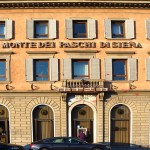By Paul Graves
 What are we called to do with our lives? This question permeates our Sunday services. For Christians transformed by the power of Christ, what becomes the daily task? Clearly, the Gospel provides the foundation for our daily purpose. The saving power of Christ must be shared and evangelism plays a clear role in our purposes. But is that it? If evangelism is our only purpose, should we all become missionaries?
What are we called to do with our lives? This question permeates our Sunday services. For Christians transformed by the power of Christ, what becomes the daily task? Clearly, the Gospel provides the foundation for our daily purpose. The saving power of Christ must be shared and evangelism plays a clear role in our purposes. But is that it? If evangelism is our only purpose, should we all become missionaries?
For the majority of Christians, their daily activity operates outside of the church or the classically defined mission field. Weekly churchgoers live Monday to Friday in the marketplace. They are marketers, financial advisors, entrepreneurs, sales people, electricians, plumbers, and mechanics, among many other professions. Does God have a call for their lives in these various fields of work?
Historically, work and faith has been the dialogue of reformed and Catholic thinkers. In the early days of the Protestant reformation, Martin Luther believed that vocation extended beyond the work of the priesthood. In fact, he suggested that the work of “rustic laborers in the field or a woman going about her business in the field” was just as important as the work of monks and priests.
In fact, a likely apocryphal story about Luther illustrates this point. A local cobbler approached Luther wondering whether he should put crosses on his shoes to promote his faith. In response, Luther replies that the cobbler could exemplify his faith through creating well-made shoes.
This position on the value of everyday work for people of faith extends throughout the Reformed tradition with voices such as Abraham Kuyper and modern reformed theologians continuing this tradition.
Likewise, Catholic theologians have put forth positions on work and faith. In his encyclical “Rerum Novarum,” Pope Leo XIII makes a case for the dignity of the human person in relationship to capital and labor. Leo affirms the rights of private property but suggests the usage of property and capital for the common good rather than individual gain.
Such a position reframes notions of ownership and work. Instead of the view of the lonely capitalist with the top hot and a myriad of workers slaving away below, property used for the common good expands to a position where ownerships spreads to a larger group of people.
Inspired by “Rerum Novarum,” G.K. Chesterton famously mentions that the problem of capitalism is not that there are too many capitalists; it’s that there are too few.
While Reformed and Catholic theologians have considered the intersection between work, faith, and economics, the charismatic traditions do not have as many voices.
Even though the charismatic movement is the largest growing section of Christianity in the world, there’s not much theological positioning around a charismatic view of work.
In fact, the most prominent position and contribution comes from Miroslav Volf’s Work in the Spirit, a consideration of God’s spiritual giftings or charisms and how that applies to work.
But Pentecostalism has much to say about work, faith, and economics. The core principle of Pentecostalism surrounds the transformative work of the Holy Spirit in our world. With this premise in mind, a charismatic approach to work includes Volf’s position on spiritual gifting and its application to your work, but it also goes much deeper.
For starters, the Holy Spirit empowers believers to be active in the world. This activity not only includes sharing the Gospel, it also informs how Christians go about work and its end result of bringing about flourishing to our communities.
In Genesis, God introduces Himself as a worker and then makes humanity in His image. Therefore, work is an inherent part of our being. Secondarily, the redemptive work of the Gospel extends from our daily work. When we fix things that are broken and when we go about our work relationships with a spirit of Christian hospitality and virtue, we are furthering the Gospel.
Our Holy-Spirit-driven call to minister to the poor connects with the marketplace, especially in the generation of wealth and the flourishing of communities. The ability to employ and empower people is a Spirit-driven, Gospel-focused activity.
Theological revelation around work and faith matters. The work in Catholic and Reformed traditions provides a robust, intellectual position for the importance of our work. However, true missional impact in communities requires Holy-Spirit-led transformation. The first work in which Jesus instructs us is to “believe” (John 6:29). The inner working of the spirit plays a role in the transformation of our minds so that Christians can bring change to the communities in which they live.
While the historical foundations of a theology of work emerge from Reformed and Catholic thinking, the Pentecostal tradition has much to say about work and faith. The Spirit has work to do in your daily activities.
Paul Graves is a pastor and leader of GodWork360, a ministry of Cedar Park Church in Bothell, WA, a vocation-focused ministry of Cedar Park centered on inspiring, supporting, equipping, and mobilizing you to discover and live out your full calling in your place of work. A church that works is the church that works.
For more, see Flourishing Churches and Communities by Dr. Charlie Self, the Acton Institute’s Pentecostal primer on faith, work, and economics.
Image credit: hickory hardscrabble












